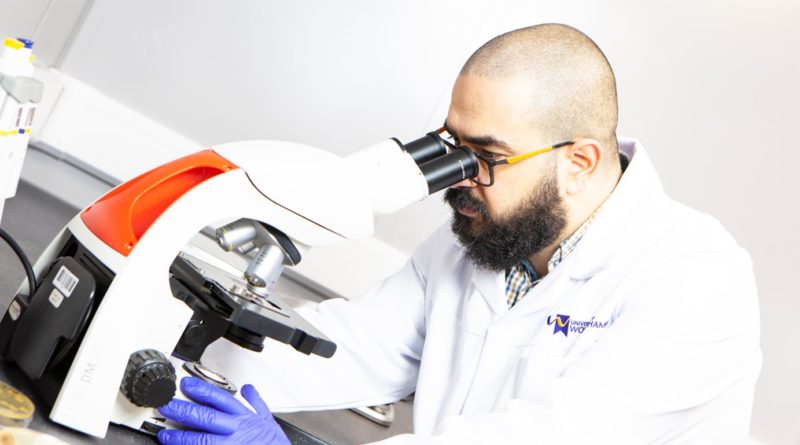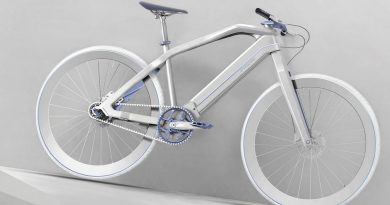Opinion: How clean is your parts washer?
Sustainability is a core issue for most businesses, ensuring that we meet the needs of our customers, without compromising the needs of those who follow. CI.N quizzes Rozone on its eco-credibility…
Those workshops that have switched over to bioremediating cleaning from the traditional spray and rag method have done so because of time saved, money saved and reduced environmental impact.
To be clean by name and by nature, Dr Ibrahim Khalil, Scientific Director at Rozone, has spent countless hours in the lab refining the parts washer process. The company has now created the ROwasher, which is the first UK designed and manufactured bioremediating parts washer, fluid and microbial filter mat.
What is bioremediation?
It is a process of using naturally occurring organisms (microbes) as a recycling factory, converting the toxic to the non-toxic, with no environmental impact.
This process has been used commercially since the end of the last century to clean up major oil spills such as the Exxon Valdez oil tanker spill. Bioremediation cleans up an oil spillage three times faster than traditional clean up methods with no environmental impact at all.
Why are microbes so important and what do they do?
Microbes use organic compounds such as carbon as an energy source for their growth and reproduction. Most of the greases or lubes used in bike workshops are carbon-based products – therefore they are a perfect food source for microbes which convert them into water and CO2. By removing such pollutants, the bioremediation technique is the most sustainable clean-up method.
How are microbes used elsewhere?
Microbes surround us in everyday life. They are used throughout medicine; the most common usage is for producing insulin. They are used in probiotics, to aid digestion, and in liquid form or capsules to breakdown fat, to reduce cholesterol. Next time you enjoy a nice cold beer, raise your glass to the microbes as they are used in beer (yeast is a microbe), to break down sugar and turn it into alcohol.
Why are microbes and bioremediation invaluable to bike workshops?
Through the combined hat trick of a ROwasher, the microbes in the filter mat (which acts as scaffolding for the microbes to breed and grow) and the ROwash cleaning and degreasing fluid, bike workshops can achieve the best, fastest clean with little impact on the environment.
What is so special about ROwasher’s microbes?
We know that ROwasher’s bioremediation is constant and controlled. We have done several controlled lab trials and know that’s not the case with other parts washers. We grow our own microbes, so we are able to control the numbers and types of microbes we use and have specifically formulated ROwash fluid for compatibility – that’s important for constant, consistent, cleaning performance.
From one first generation microbe we can produce 1,000,000,000,000 in one fermentation run. This is a real eco warrior army, helping us to get rid of toxic material, with minimal environmental impact.
How does the triad of ROwasher, filter mat and ROwash work?
The machine acts as a huge recycling vessel. Whilst the ROwash fluid cleans the dirty parts, the filter mat delivers 200 million microbes into the system to clean-up the washed off oil and grease. The microbes turn this oily waste from toxic to non-toxic, effectively recycling and self-cleaning the parts washer fluid to be used time and time again – a real money saver.
Monthly Change: It is vital that the filter mat is changed every month to introduce a new colony of 200 million microbes, keeping the microbes fit and healthy and the fluid clean for every use. The filter mat is the only waste to be disposed of each month – so impact on the environment is minimal.
Guaranteed Microbes: We use a very strict production and QC procedure in our microbe lab and can guarantee that each mat contains 200 million microbes.
200 Million Microbes: 200 million is a critical number, because once the microbes drop below that number the bioremediation process is compromised. Following extensive lab trials, we have found that this is the threshold below which there just aren’t enough microbes to make a difference.
Hungry Microbes: After a month, the filter mat needs changing to sustain that important number and keep the colony healthy and varied. Having enough variation in our types of microbes ensures that different oils, greases and lubes can be degraded.
New Generation: Whilst Rozone has long supported the science of bioremediation, they were aware that the original parts washers they supplied had not developed for some time. Customers were asking for a more sustainable cleaning solution, one that reduced running costs, power consumption, and consumable usage, with a fluid that stays cleaner for longer. Two years ago, they took the decision to partner with a leading R&D facility, the University of Wolverhampton, to design, develop and manufacture the new generation bioremediating parts washer and consumables.
Eco-Mode: With the energy saving eco-mode and double-skinned tank, the ROwasher is helping bike shops save as much as 42% in energy consumption. With the innovations in fluid and filters, the ROwash consumables now beat all other competitor combinations in providing the best in bioremediation.
Less than £1 per wash: This is cheaper than off-the-shelf bike cleaning products and providing a more pleasant cleaning experience for mechanics. This bioremediating parts washer is a seriously attractive professional-grade tool.
Increase Service Capacity: A faster clean, means quicker throughput, generating increased revenue.
These invisible to the human eye micro-organisms are certainly offering a powerful sustainable solution when it comes to cleaning dirty parts.
For more detail on the available units to buy or rent for your business, read CI.N’s market guide here.



